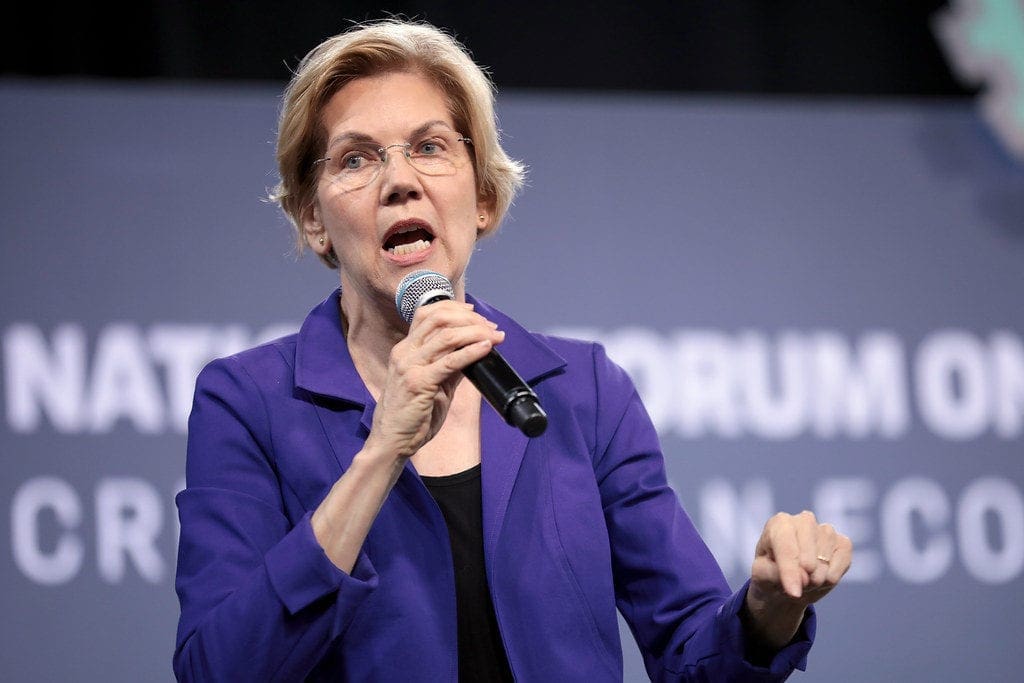Last month 2020 Democratic presidential candidate Elizabeth Warren proposed an overhaul of federal laws that make it easier for unions to recruit more members and increase union dues. Unions are a big constituency within the Democratic Party and Warren needs all the help she can get. She argued that her union reforms would help workers and raise wages.

It’s no secret that labor unions are big players in Democratic Party politics. During the last presidential election cycle, the Center for Responsive Politics reports that unions spent a hefty $219 million. 88 percent of that money was donated to Democrats or spent in support of their candidates. In contrast, a measly 12 percent of union spending benefited Republicans. Logically, Democratic contenders are already trying to court Big Labor’s support for 2020. Bernie Sanders and Beto O’Rourke(Before he ended his campaign) have presented similar legislative packages that would greatly strengthen labor unions.
Warren’s plan consists of banning right-to-work laws, which force workers to join a union or pay union dues if their workplace is unionized. On top of that, her legislative package would allow unions to organize by the coercive “card check” method, mandate that drivers for rideshare companies such as Uber and Lyft become employees instead of independent contractors, and allow graduate students to unionize.
The Massachusetts senator’s opposition to right-to-work laws makes sense due to Big Labor’s hatred of such policies, which usually result in reduced union membership and lower union dues collections. On the other hand, everyday citizens — the forgotten man — in these discussions, witness lower costs of living, better labor flexibility, and less of a tax burden thanks to the policies that make union membership voluntary.
The card-check method would compel companies to accept unions if organizers present cards that demonstrate approval from more than 50 percent of the workforce. Current law allows companies to request the federal government to hold a secret ballot election to make sure that unions actually have worker support. The elimination of the secret ballot via card check would likely create incentives for false claims of support and even subject workers to potential intimidation from union members now that their privacy rights are effectively null.
Warren also proposes a national version of a California law that mandates gig economy titans such as Uber and Lyft no longer classify their workers as contractors and instead categorize them as employees. Contractors are treated as an independent company and are not eligible for the majority of benefits and protections afforded to workers under federal law, such as minimum wage and mandatory overtime pay. Gig companies are correct in opposing these kinds of measures. The gig economy gives workers unprecedented flexibility in setting their schedules and working as much as they desire.
Additionally, Warren wants to grant more privileges to federal government workers by granting them the ability to strike. Curiously, Democratic leaders such as Franklin Delano Roosevelt and Jimmy Carter have been opposed to unionizing federal workers because of the disruption they feared that would cause. Further, public sector unionization involves taxpayers being held hostage any time negotiation disputes arise between the government and unions. More often than not, these disputes end with unions extracting hefty benefits at the taxpayer’s expense.
In short, Warren wants to use the federal government to empower unions.
If people want to support unions in their private affairs, that is their prerogative. However, the state’s involvement in labor organization does create a series of second-order effects that infringe on the freedom of association and also impact everyday citizens in the form of poorer public services, higher costs of living, and increased taxes, among other things.
A more practical approach to labor organization is to devolve power to the states and let policymakers in those jurisdictions decide how unions will be organized.

























